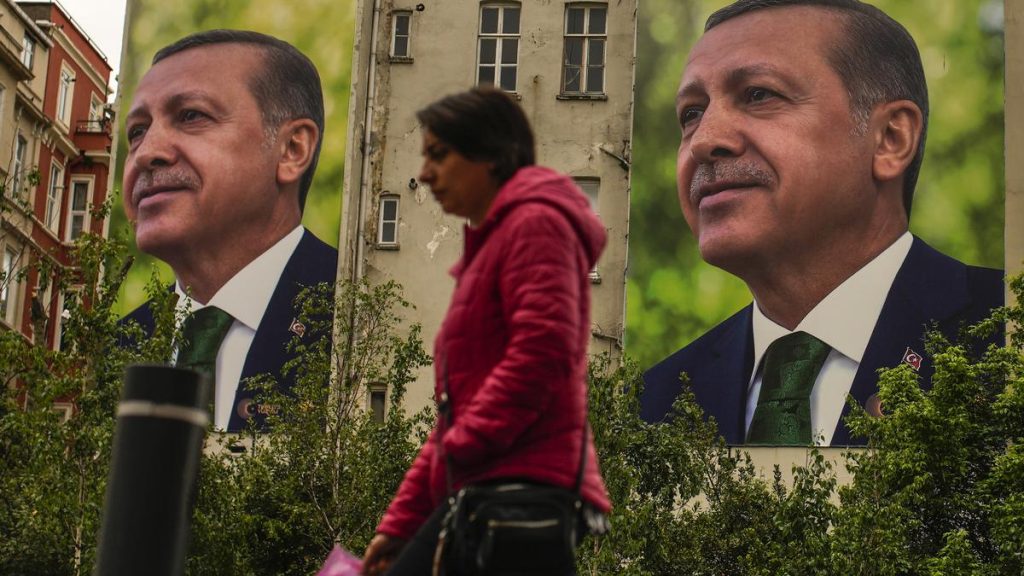Turkey’s presidential election is all set to go for a runoff as neither the incumbent, Recep Tayyip Erdogan nor his main challenger Kemal Kilicdaroglu, could get the mandatory 51 per cent of votes for outright victory in the first round. Erdogan secured 49.4 per cent of the vote against Kilicdaroglu’s 44.8 per cent, according to the state-run Anadolu news agency. The outcome of the election is being keenly watched internationally since it will have, among other things, a bearing on the ongoing Russia-Ukraine war. Despite being a NATO ally, Erdogan is a Moscow sympathiser. This is for the first time during his tenure, first as Turkey’s Prime Minister and then President spanning 20 years, Erdogan is facing stiff challenge from his rivals. He began as a liberal, democratic politician, but in a few years he turned into an autocrat sending ominous signs to the democratic population of the country. His victory, it is feared, would make him even more autocratic. Six Opposition parties put up a common candidate, Kilicdaroglu, against him to forestall that possibility banking on the growing disenchantment of a large number of people with his rule.
Over the years, Erdogan consolidated his position with a lethal mix of policies geared to the welfare of the rural population and the working class and placating conservative religious groups by giving them the freedom to practise their faith curtailed by the country’s secular constitution. On the contrary, Kilicdaroglu is projecting himself as liberal, democratic and humble, determined to prevent the country’s slide into an even worse form of autocratic rule which has become a recent trend in government formation in the West and Asian countries. The two different kinds of political outlook are exemplified in the way the two leaders ended their election campaign. Erdogan concluded his election campaign by praying at Hagia Sophia – a mosque and major historic site in Istanbul. In contrast, Kilicdaroglu visited the tomb of Mustafa Kemal Ataturk, the founder of modern Turkey and a staunch secularist. The election outcome in the first round clearly shows Erdogan’s tactic has not paid off as per his expectations. He appealed to the electorate for outright victory with 51 per cent of votes, extolling what he claimed were the virtues of his long rule, campaigning on a platform of stability, independent foreign policy and continuing to bolster Turkey’s defence industry.
Recently, he raised the wages of government workers by 45% and lowered the retirement age. However, over the last two years, Turkey’s currency has plummeted and prices have soared sky high, prompting a cost of living crisis. This has eroded Erdogan’s working class support base. When a devastating earthquake on February 6 ruined large parts of southeast Turkey, he failed to rise to the occasion. The affected people could not get the relief from the government as they expected. His botched rescue effort and lax building controls encouraged by his party provided much-needed ammunition to the Opposition which has clearly benefited, as the poll results show. The outcome of the vote set the stage for a two-week battle between Erdogan and Kilicdaroglu to secure victory in a May 28 runoff that may reshape Turkey’s political landscape. If Erdogan eventually loses, his defeat could allow Turkey to move back towards democracy and greater freedom. This is the pledge which a united Opposition has given to the people to elect their common candidate. Erdogan’s first decade in power since 2003 was marked by high growth and sharp reductions in inequality and he pushed through major infrastructure improvements. But he came across as an authoritarian pretending to be progressive after he started a harsh crackdown on nationwide protests against him in 2013. Then a failed coup attempt in 2016 led to intensified political repression. Since then he has jailed many journalists and dissidents and also come down heavily on women’s, LGBTQ+ and other civil rights groups. Many inside and outside Turkey hope that the Opposition’s promise of reviving the economy could help Europe diversify its supply chains away from China which is exerting its influence on Erdogan. The Opposition has hinted that they would turn towards the West, while Sweden hopes an opposition victory would hasten its entry into NATO that Erdogan has been thwarting. The fate of the presidential race in Turkey is going to have a deep and far-reaching geopolitical impact affecting Europe, Africa and Asia as the strong man image being projected by many leaders in different countries will take a beating. It may well convince people across the world that the idea of democracy is still alive and can bring about changes if unwanted individuals are unseated. The alternative is not important when change is sought.
